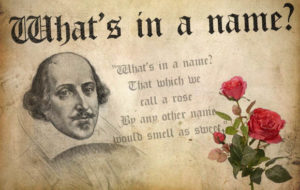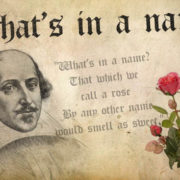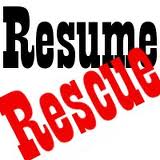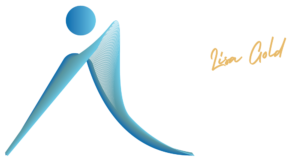What’s In A Name? Should It Be On Your Resume?
 Let’s dive a little deeper into the psychology of your resume and the effect of names, or in fact the words in general, that you put on it.
Let’s dive a little deeper into the psychology of your resume and the effect of names, or in fact the words in general, that you put on it.
Of course your name should be on it…big and bold and at the top of a hard copy or PDF version along with your contact info. Your online profiles place your name prominently by default. But what about names of directors, teachers, or even stars that you’ve worked with? Should they go on there too?
In a word YES, but ONLY if they are just as, if not more, recognizable as yours and give influential meaning to the reader of your resume. I’ve seen in the last few years the trend of adding a 4th column or replacing a production or theater company with a director’s name. Why? Because someone told you to or because everyone is doing it?
That’s called the blind leading the blind. Mass mentality. Not knowing how to market yourself correctly.
Why would you put student director, Joe Blow, on your resume? Wouldn’t Columbia Film School or USC Grad Film seem a better visual and psychological connection for an agent or casting director to view and evaluate you on rather than an unknown person that has no meaning to them? Industry professionals appreciate work done at the University level and of course these schools have a credibility and history so it explains more about YOU to see the recognizable school names…so take Joe Blow off.
What about Steven Spielberg? Do not put his name there unless you had a speaking role in a recent feature and were actually directed by him. The industry can certainly tell based on your union status and other credits if you were a background actor and putting Steven’s name on your resume now doesn’t enhance your status it hurts it.
In fact, agents and casting directors connect more to production companies and theater companies/producers because of their (most likely) multiple and prominent projects over years. The more well known the name of the person, company, network or school is, the better for you!
The same thing applies for stars. If you worked with them in a speaking role but the play, webisode, indie film, or other work title isn’t well known, putting the star’s name raises the visibility of the project, and you by association.
How about those teachers? Absolutely…and it’s even better if those teachers are known and respected by the industry. Take this into consideration the next time you’re looking for a great class and skill set to add. Your talent agent (or perspective rep) would certainly like to see an audition technique class taught by a working casting director as that then becomes a connection for them to leverage in a submission for you on their next project.
And if you want to get to the nitty gritty of the psychology of words in general, consider the example of an @aol.com email address these days. You know immediately that anyone using one is over 40! (Yes, I still have one!) It’s all about the immediate and automatic psychological connection we make between the words we view and our thoughts about them.
The names of the characters or kinds of roles you played can have a great impact. For example, if your brand and product is an innocent/ingenue and you played a character named Gladys, that’s a disconnect, as we stereotypically think of Gladys being an older person’s name.
If you’re a leader type and you’re carving this perception with the credits on your resume, seeing the words (roles) Lawyer, Politician, Judge will have the reader of your resume understand this. This does help in the beginning of your career when you have background credits or non-speaking roles in projects.
This is not to say you will be making things up that aren’t true on your resume, it’s saying that you can position your credits, take things off that don’t belong, and have complete creative control over the perception and product you’re selling.
There’s a ton of marketing psychology in play when industry professionals are reading your resume and looking for that “gut check” (at a glance most of the time) so the more you know about proper placement of words and name value, the better odds you’ll have of getting in the door to show your stuff. After all, your resume is the tool that, along with the picture(s) that they see first, will get you that audition or not.
Have any comments or stories to tell? I’d love to hear from some of you that I’ve worked with and hear about the adjustments we made on your resume and how they’ve impacted your audition rate.





 I'm all for actors working. Of course I am and of course you want to work. But what KIND of work?
I'm all for actors working. Of course I am and of course you want to work. But what KIND of work?